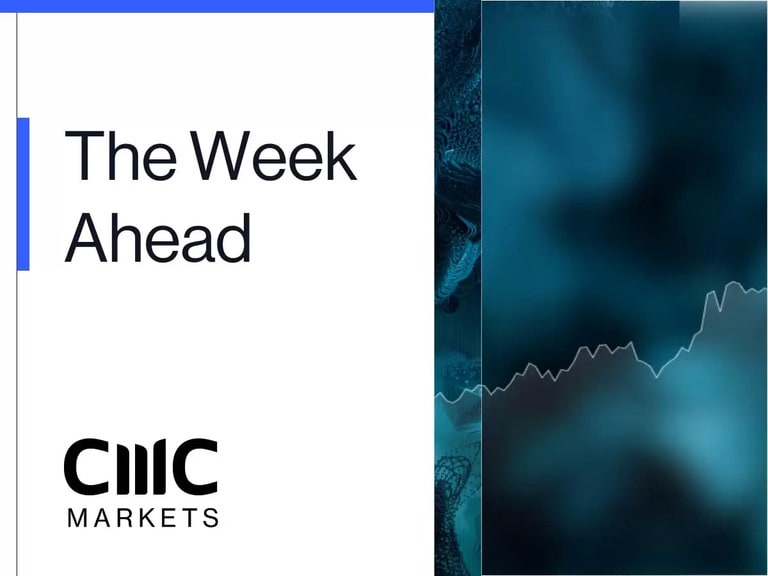Welcome to Michael Kramer’s pick of the top three market events to look out for in the week ahead.
All eyes will be on two US inflation readings for February – the consumer price index (CPI) on Tuesday and the producer price index (PPI) on Thursday. The two reports matter because analysts will use the data to shape their expectations of Federal Reserve interest rate cuts this year. The figures also help analysts develop their estimates for the monthly personal consumption expenditures (PCE) price index, the Fed’s preferred inflation measure, which will be printed later in March.
Additionally, Oracle’s third-quarter results, due out on Monday, are a must-watch event since the stock – up almost 30% over the past year at roughly $115 – has benefited significantly from AI mania. Then, on Friday, quarterly US options contracts expire, which is always a key moment as it can create a large amount of volatility.
Oracle results (Q3)
Monday 11 March: Oracle is expected to report fiscal third-quarter 2024 earnings of $1.38 a share on revenue of $13.28bn. Revenue for its cloud and license unit is expected to grow by 11.4% on a constant currency basis to just over $9.9bn. In comparison, revenue from its applications division is forecast to grow by 8.9% to $4.4bn, while the infrastructure segment is expected to grow by 13.1% to $5.3bn.
From an options positioning standpoint, a large amount of call gamma has built up around the $120 strike price for the options expiration on 15 March. Oracle will therefore need to report strong results if the stock is to move higher and beyond $120. If the results disappoint the market, the Oracle share price could fall from current levels near $115, leaving it in a downtrend from when the technology company reported Q1 results on 11 September last year.
US CPI (February)
Tuesday 12 March: The annual rate of consumer price inflation in the US is expected to come in at 3.1% for February, unchanged from January. On a monthly basis, CPI is expected to have risen 0.4% in February, up from a 0.3% increase in January. Meanwhile, core CPI – which strips out volatile items such as food and energy – is expected to have increased 3.7% in the year to February, down from 3.9% in January. On a monthly basis, core CPI is forecast to have risen 0.3% in February, down from 0.4% in January.
Inflation swaps indicate the potential for a slightly hotter-than-expected headline CPI reading, with the market pricing in increases of 3.17% year-on-year and 0.46% month-on-month. If CPI comes in as swaps have priced in, then it could cause the US two-year Treasury yield to surge. The two-year yield has been unable to surpass resistance at 4.75% and, as a result, has fallen back to around 4.5%. Hot CPI data could make the market reassess its expectation of three Fed rate cuts in 2024. That could push the two-year back to resistance at 4.75%, with a break of resistance potentially setting up a move back towards 4.95%. Conversely, a miss on CPI could result in the two-year rate falling back to 4.25%.
Options expiration
Friday 15 March: The S&P 500, which hit a fresh record high of 5,165.62 points on Thursday, is likely to stay in a tight trading range for most of the coming week as it gets pinned to a vital gamma level heading into Friday’s quarterly options expiration. The level with the greatest concentration of put and call gamma is at 5,000 points, while the area around 5,100 has the second most significant amount of gamma build-up.
For now, the level with the most significant amount of call gamma at higher levels comes at 5,200, and that is likely to serve as the “call wall”, acting as resistance as call owners may choose to sell their calls above 5,200 to monetise profits. With the S&P 500 trading just above 5,150 at the time of writing, the index may stay contained in a range between 5,100 and 5,200 this coming week. However, if the index should dip below 5,100, it could drop back to 5,000.
Key economic and company events
Here’s our rundown of notable economic announcements and company reports scheduled for the coming week:
Monday
• Australia: March Westpac consumer confidence
• Results: Oracle (Q3)
Tuesday
• Germany: February harmonised consumer price index (CPI)
• UK: January jobs data, including unemployment rate and average earnings
• US: February CPI
• Results: Ashtead (Q3), Domino’s Pizza (FY), Manchester United (Q2), Persimmon (FY)
Wednesday
• Eurozone: January industrial production
• UK: January gross domestic product (GDP), including industrial and manufacturing production
• Results: Balfour Beatty (FY), PDD Holdings (Q4), Pension Bee (FY), Williams-Sonoma (Q4)
Thursday
• Spain: February harmonised CPI
• US: February producer price index (PPI), retail sales
• Results: Adobe (Q1), Build-A-Bear Workshop (Q4), Deliveroo (FY), Dick’s Sporting Goods (Q4), Helios Towers (FY), Kodak (Q4), Lennar (Q1), Savills (FY), Trainline (FY), Vistry (FY)
Friday
• France: February CPI
• Italy: February CPI
• UK: Consumer inflation expectations
• US: February industrial production; March Michigan consumer sentiment index; options expiration
• Results: Groupon (Q4)
Note: While we check all dates carefully to ensure that they are correct at the time of writing, the above announcements are subject to change.
Index dividend schedule
Dividend payments from an index's constituent shares can affect your trading account. View this week's index dividend schedule.
Disclaimer: CMC Markets is an execution-only service provider. The material (whether or not it states any opinions) is for general information purposes only, and does not take into account your personal circumstances or objectives. Nothing in this material is (or should be considered to be) financial, investment or other advice on which reliance should be placed. No opinion given in the material constitutes a recommendation by CMC Markets or the author that any particular investment, security, transaction or investment strategy is suitable for any specific person. The material has not been prepared in accordance with legal requirements designed to promote the independence of investment research. Although we are not specifically prevented from dealing before providing this material, we do not seek to take advantage of the material prior to its dissemination.







